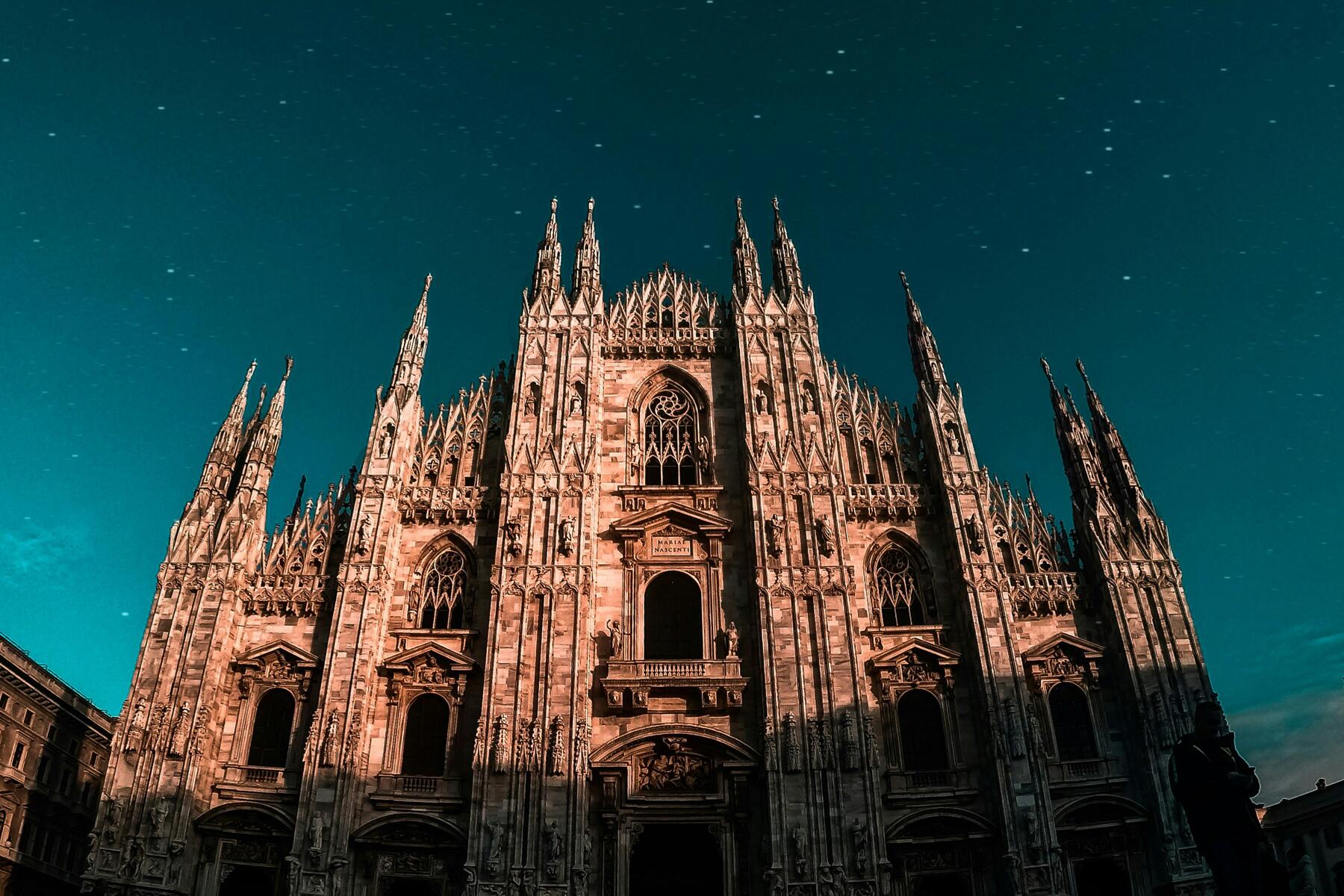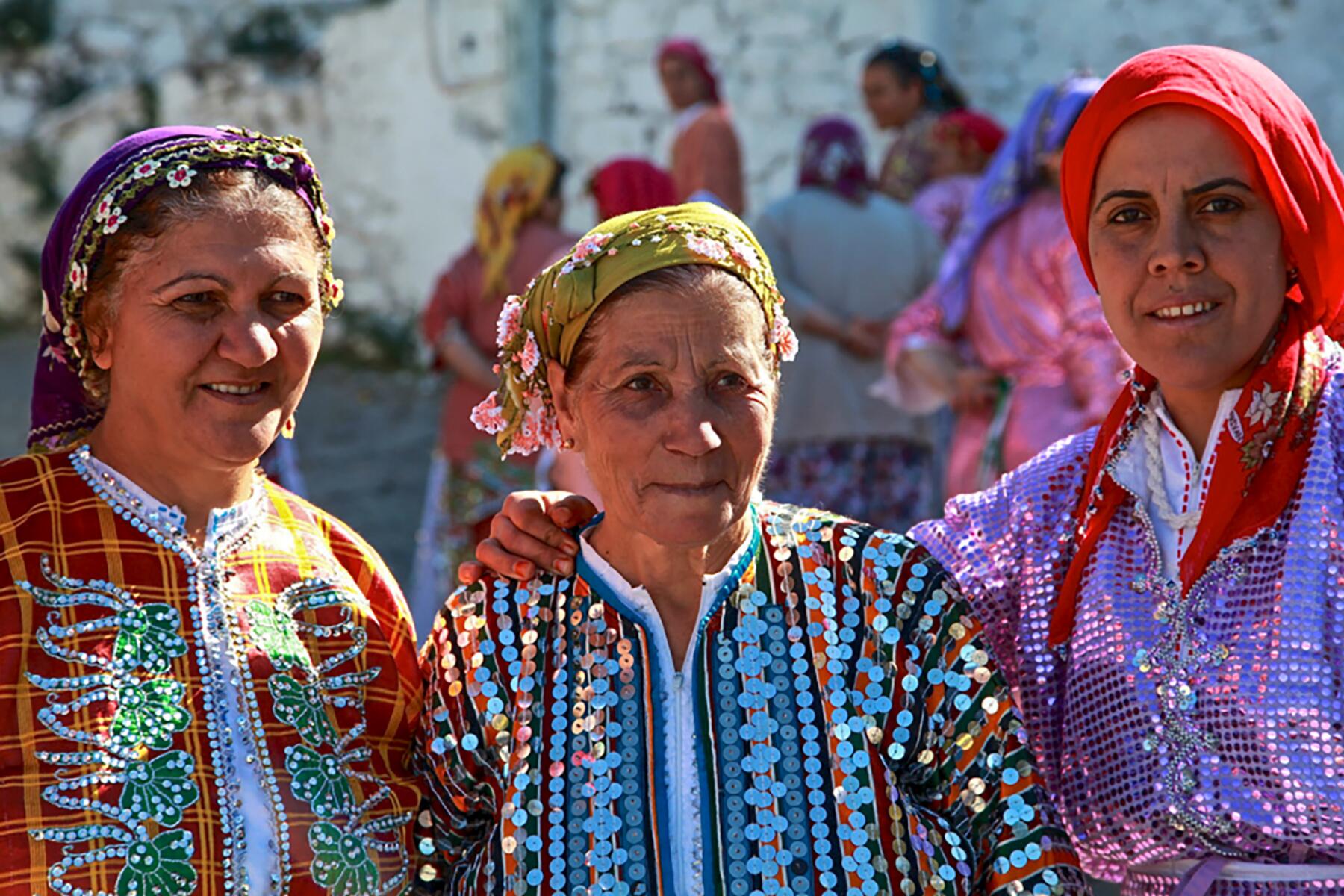Not All Men!
T
raveling as part of a group tour has plenty of upsides: the itinerary is set, the logistics have been arranged, and the participants tend to be like-minded travelers with whom it’s possible to socialize and form friendships.
A women-only group tour (or a men-only tour, for that matter) comes with advantages that may not be so obvious, such as granting access to experiences that do not accommodate mixed company, reducing the likelihood that conflicting energies could shift the tone of an experience, and allowing space for alternative dynamics to form among the tour’s participants and the people they meet along the way.
Trafalgar, a popular tour company that runs over 300 trips through 70 countries, offers a “Be My Guest” experience on their Highlights of Turkey Women Only tour that is an opportunity for an all-women tour group to meet the all-women hosts of this special experience.
The visit takes place in the small farming village of Demircidere, where the women welcome travelers into their homes for a meal and to share insights into one another’s lives.
A scenic drive along the cliffs overlooking the Aegean eventually turns inland, past olive groves and the tall, dark plumes of cypress trees to the Kozak Plateau, where the tranquil village of Demircidere resides among hills covered with feathery pines in a technicolor shade of green.
Recommended Fodor’s Video
There were not many people around when the bus pulled in, except for a small group of men playing cards beneath a spreading plane tree and three women standing patiently in colorful dresses. We were greeted with enthusiasm by the women, who—despite not speaking much English—were friendly and smiling, seeming pleased at our arrival.
For an afternoon, we shed our tourist status and shared a moment communing with other open-minded, culturally curious, and self-determined women.
The mayor of Demircidere came to greet us. After exchanging hellos, we followed our hosts to a large stone oven built in an exterior wall, where the women set to work removing the round metal pans containing fresh loaves of bazlama bread. The mayor distributed small cups and poured wine into them, and when we were all settled with our hunks of warm bread and sips of wine, we toasted our arrival.
The wine, or şarap, exhibited a vinegar-forward flavor, but it complemented the toasty bread, and when the mayor of a village in Turkey hands you a tiny cup of wine, you should probably drink it.
The people of Demircidere are Alevi, a Shia sect of Islam considered to be progressive in the Muslim world. Their traditions deviate significantly from those of Turkey’s Sunni majority. Taking inspiration from Sufism, a mystical interpretation of Islam that included the Persian poet Rumi as one of its followers, the Alevi incorporate music, song, and dance into their ceremonial practices in lieu of formal prayer traditions, and both women and men participate in these rituals.
The Alevi consume wine in religious ceremonies, creating their own homemade varieties to drink at their leisure. The women’s traditional clothing, üç etek or “three skirts,” is made from colorful layers of sequin-ensconced fabrics, a fashion that is unique to their culture. These practices of self-expression and social equality allow for a more open and relaxed approach to outsiders. As a result, the Alevi women are empowered to invite travelers to their village to participate in a cultural exchange.
After the warm welcome, we were split into smaller groups. We followed one of the women, Summer Rose, along a cobbled street, past stone houses and small gardens, where branches studded with pomegranates spilled out over the brick walls, and bright pink oleander blossomed under the edges of rooftops. Summer Rose led us through her gate to a patio where a trellis of thick grapevines overhead threw near-total shade onto the swept-clean concrete, the deep red bunches suspended beneath their blanket of broad leaves. We climbed up to the terrace, where a table was set and laid with olives, bread, wine, a bowl of thick white yogurt, and börek, a flat, savory pastry filled with spinach and served in a heaping stack. The dolmas, or stuffed grape leaves, jostled for prominence in their crowded dish.
We took our seats to admire the panoramic view from the terrace, the eye-popping green pines stretching out under a radiant blue sky. The scents in the air were intoxicating, emanating from the food on the table and the surrounding gardens, where trees of figs, apricots, and cherries thrived, and the herbal aromas of rosemary and lavender floated by in intermittent whiffs.
In Demircidere, the villagers cultivate abundant gardens to feed themselves and to create homemade specialty food products to sell. In addition to hosting guests, cooking meals, growing gardens, preparing jams and wine, the women also made scarves and jewelry to sell to interested visitors. It was clear that these women were not only hosting our lunch but were also successful entrepreneurs.
I had been enlisted to help Summer Rose serve the çiğirtma, a decadent mixture of eggplant and tomatoes in olive oil. She invited me inside her home, where I found a delightful space decorated with colorful ceramics, dried herbs, and walls adorned with photographs of smiling people. Summer Rose and the other women in the village live modern lifestyles—their children attend universities in larger cities, they have Wi-Fi, and they wear common styles of clothing, moving through the world much like anyone else.
Even though I had not stopped filling up on dolmas, the sarayli was served, one of the many succulent iterations of doughy, honey-doused Turkish desserts. I still managed to polish off the bowl of dolmas before it was time to depart.
Meeting and spending time with the gracious women in Demircidere was one of the highlights of this women-only tour. For an afternoon, we shed our tourist status and shared a moment communing with other open-minded, culturally curious, and self-determined women.
Learn more about the women of Demircidere here.



